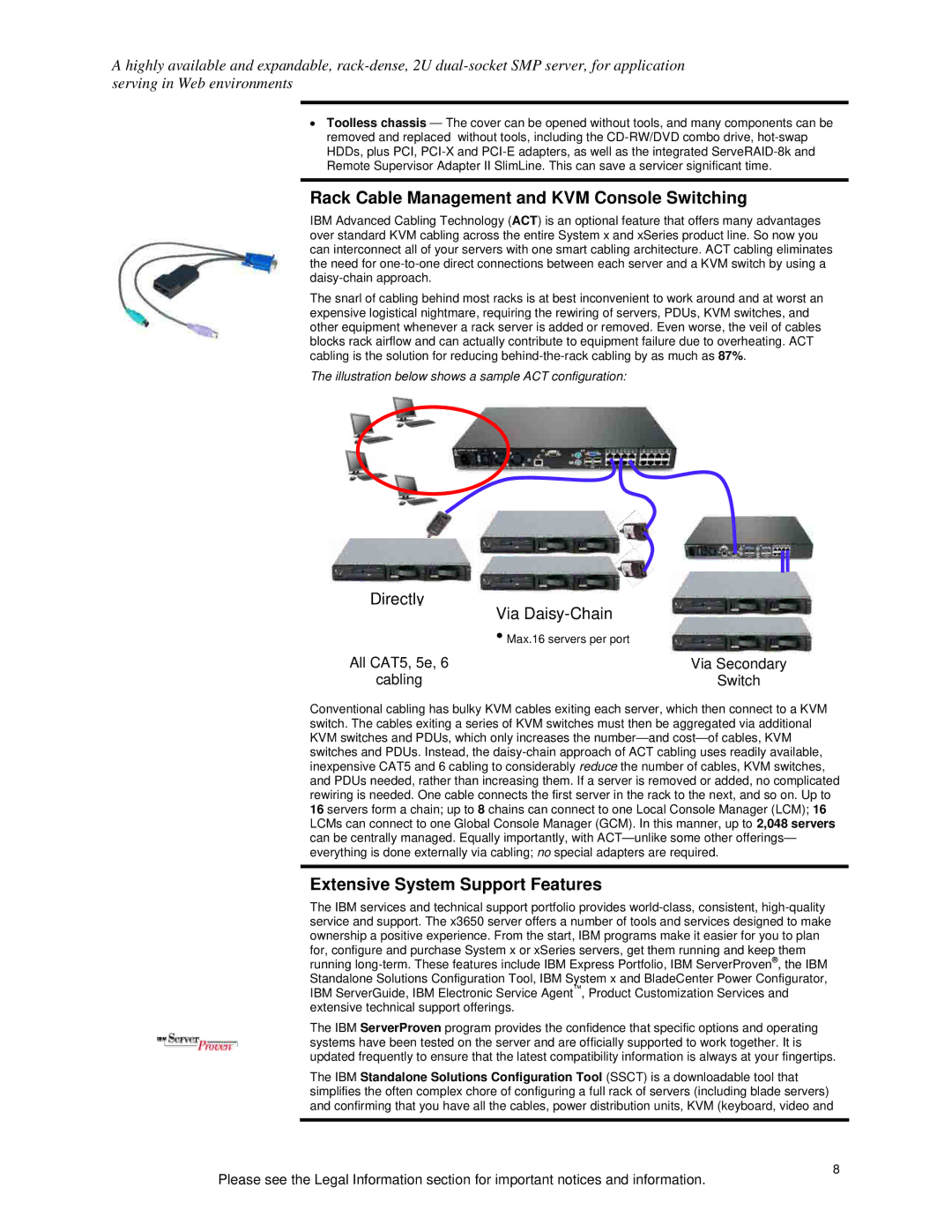
A highly available and expandable,
•Toolless chassis — The cover can be opened without tools, and many components can be removed and replaced without tools, including the
Rack Cable Management and KVM Console Switching
IBM Advanced Cabling Technology (ACT) is an optional feature that offers many advantages over standard KVM cabling across the entire System x and xSeries product line. So now you can interconnect all of your servers with one smart cabling architecture. ACT cabling eliminates the need for
The snarl of cabling behind most racks is at best inconvenient to work around and at worst an expensive logistical nightmare, requiring the rewiring of servers, PDUs, KVM switches, and other equipment whenever a rack server is added or removed. Even worse, the veil of cables blocks rack airflow and can actually contribute to equipment failure due to overheating. ACT cabling is the solution for reducing
The illustration below shows a sample ACT configuration:
Directly | Via |
| |
| • Max.16 servers per port |
All CAT5, 5e, 6 | Via Secondary |
cabling | Switch |
Conventional cabling has bulky KVM cables exiting each server, which then connect to a KVM switch. The cables exiting a series of KVM switches must then be aggregated via additional KVM switches and PDUs, which only increases the
Extensive System Support Features
The IBM services and technical support portfolio provides
The IBM ServerProven program provides the confidence that specific options and operating systems have been tested on the server and are officially supported to work together. It is updated frequently to ensure that the latest compatibility information is always at your fingertips.
The IBM Standalone Solutions Configuration Tool (SSCT) is a downloadable tool that simplifies the often complex chore of configuring a full rack of servers (including blade servers) and confirming that you have all the cables, power distribution units, KVM (keyboard, video and
Please see the Legal Information section for important notices and information.
8
